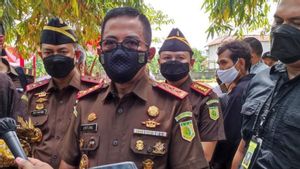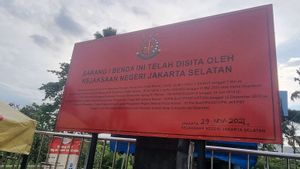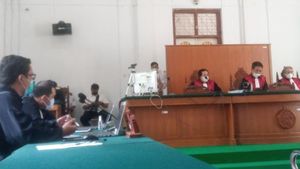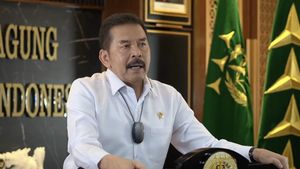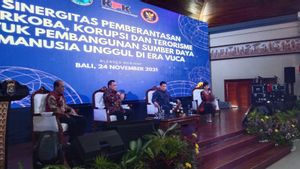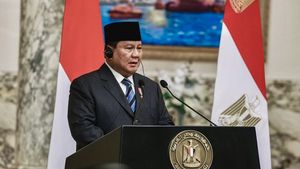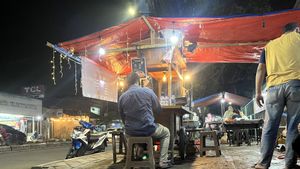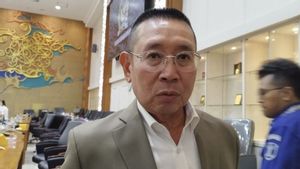JAKARTA - Attorney General ST Burhanuddin's refusal to implement the death penalty for corruptors continues to roll on in the community. Human rights activists such as Amnesty International Indonesia strongly oppose the death penalty in all cases without exception.
They consider the death penalty a violation of the right to life as stated in the Universal Declaration of Human Rights.
"Regardless of who is accused of committing the crime, the nature of the crime, guilty or innocent, or the method of execution used," said Amnesty International Indonesia's Executive Director, Usman Hamid, in a written statement, Saturday, December 4.
Based on existing research, it has been shown that what is effective in reducing criminal acts is legal certainty, not the severity of the punishment.
"The death penalty has not been proven to have a deterrent effect," he continued.
In addition, Usman said that countries with the lowest levels of corruption based on the TII Corruption Perception Index such as New Zealand, Denmark, and Finland do not apply the death penalty for corruptors.
Countries that implement the death penalty for corruptors, he continued, such as China, North Korea, and Iraq actually have much higher levels of corruption, some of which are even higher than Indonesia.
"Therefore, if we want to create a deterrent effect and eradicate corruption, the Attorney General and other law enforcement officers should focus on ensuring that all perpetrators of corruption can be brought to justice, not playing with rhetoric about the death penalty," he said.
He also thought that it would be strange if the government allowed the KPK to be weakened by the dismissal of 57 employees who had proven achievements and integrity, instead of supporting the consideration of the death penalty as discussed by the Attorney General's Office. Because according to him, the death penalty has been proven ineffective as a solution to eradicate corruption.
"Instead of being busy with the death penalty discourse, the Prosecutor's Office should also focus on a lot of big homework that they haven't finished, for example solving cases of past gross human rights violations, such as the Semanggi and Trisakti Tragedy," he continued.
SEE ALSO:
Meanwhile, a legal observer, Jamin Ginting, said that the condition of law enforcement in Indonesia will never be able to carry out the death penalty for corruptors. Although in Article 2 paragraph 2 of Law 31 of 1999 concerning the Crime of Corruption it is possible.
He reasoned, in handling corruption cases, the Attorney General should give priority to recovering losses.
"Solving corruption cases should focus on returning assets, not imposing penalties," Jamin Ginting told reporters.
He also mentioned the confiscation of assets carried out by the Attorney General's Office in the Asabri and Jiwasraya cases, which were judged to have confiscated a lot of assets so that they did not protect third parties with good intentions.
"The confiscation of criminal assets is not intended to be controlled or confiscated, unless they are state-owned assets," he said.
In addition, Jamin also criticized the rampant corruption cases of snapper which are still stalled and have the potential for conflict of interest in handling corruption cases. In fact, he continued, with a sufficient number of human resources (HR) in the Attorney General's Office, many 'stalled' cases could be followed up.
"Supposedly with sufficient human resources, the examination of other cases should also be followed up. If you want to dismiss the opinion of a conflict of interest, concrete evidence is needed," he said.
The English, Chinese, Japanese, Arabic, and French versions are automatically generated by the AI. So there may still be inaccuracies in translating, please always see Indonesian as our main language. (system supported by DigitalSiber.id)



